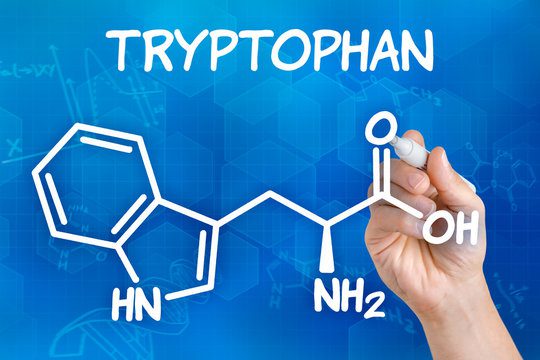Tryptophan, an essential amino acid crucial for various biological functions, plays a significant role in maintaining overall health and well-being. This article delves into the intricacies of tryptophan, exploring its sources, physiological importance, and impact on serotonin production. From its association with mood regulation to its potential health benefits and risks, understanding the fundamental aspects of tryptophan is key to optimizing one’s nutritional intake and promoting a balanced lifestyle.
1. Introduction to Tryptophan
What is Tryptophan?
Tryptophan is like the chill pill of the amino acid world. It’s one of the building blocks of proteins, but its claim to fame is being a precursor to serotonin, the feel-good neurotransmitter that helps keep our moods in check.
Historical Perspective
Back in the day, tryptophan was the shy kid at the amino acid party until scientists discovered its role in mood regulation. Now, it’s like the VIP guest, getting all the attention for its potential mood-boosting powers.
2. Sources of Tryptophan
Natural Food Sources
You can find tryptophan hanging out in high-protein foods like poultry, dairy, nuts, seeds, and tofu. So, next time you’re feeling down, reach for that turkey sandwich – it might just help lift your spirits.
Dietary Supplements
For those who want an extra boost of tryptophan, dietary supplements are here to save the day. Whether in pill or powder form, these supplements can help ensure you’re getting enough of this happy amino acid.
3. Role in Body
Protein Synthesis
Tryptophan plays a crucial role in building proteins, which are the workhorses of our body. So, next time you’re pumping iron at the gym, thank tryptophan for helping those muscles grow.
Niacin Production
Here’s a fun fact: tryptophan can also be turned into niacin, a B vitamin that’s essential for metabolism and overall bodily function. It’s like tryptophan is the multitasking superhero of the amino acid world.
4. Tryptophan and Serotonin Production
Connection to Serotonin
Tryptophan is the matchmaker between protein and serotonin production. It gets converted into 5-HTP, which is then transformed into serotonin – the ultimate mood booster. Time to thank tryptophan for those happy vibes!
Impact on Mood and Sleep
Since serotonin is involved in regulating mood and sleep, having enough tryptophan in your system can help keep those blues at bay and ensure you catch some quality zzz’s. So, next time you’re feeling a bit off, remember: it might just be a tryptophan deficiency.
5. Health Benefits
Reduced Anxiety and Depression
Feeling down in the dumps? Tryptophan might just be your new best friend. This amino acid helps in the production of serotonin, the feel-good hormone that can work wonders in reducing anxiety and lifting your spirits.
Promotes Healthy Sleep
Can’t catch those Zs? Tryptophan could be your ticket to dreamland. Tryptophan gets converted into melatonin, the sleep-inducing hormone that tells your body it’s time to hit the hay. Say goodbye to tossing and turning all night!
6. Tryptophan Deficiency and Symptoms
Causes of Deficiency
If you’re not getting enough tryptophan in your diet, you might start feeling like a grumpy cat. A lack of tryptophan can be caused by a diet low in protein-rich foods or conditions that interfere with its absorption in the body.
Symptoms of Deficiency
Feeling more irritable than usual? Tryptophan deficiency could be the culprit. Symptoms include mood swings, trouble sleeping, and feeling more stressed out than a cat at a dog show.
7. Tryptophan Supplements and Dosage
Types of Supplements
Don’t worry if turkey dinners aren’t your thing – tryptophan supplements are here to save the day. Whether it’s capsules, powders, or chewables, there’s a tryptophan supplement out there for everyone.
Recommended Dosage
It’s all about balance. The recommended dosage usually ranges from 500mg to 2g per day, but it’s always best to consult with your healthcare provider to find the right dose for you.
8. Potential Risks and Side Effects
Possible Risks
While it can be a lifesaver for some, it’s not all rainbows and butterflies. In rare cases, taking high doses supplements can lead to a condition called serotonin syndrome, so be sure to stick to the recommended dosage.
Side Effects and Interactions
Before you dive headfirst into the world of tryptophan supplements, be aware of potential side effects like nausea, dizziness, and headaches. It’s also crucial to check for any interactions with medications you may be taking to avoid any unwanted surprises.In conclusion, the multifaceted nature underscores its importance in supporting both physical and mental health. Whether through dietary sources or supplements, harnessing the benefits of this amino acid can contribute to improved well-being and vitality. By recognizing it’s role in intricate web of biochemical processes within the body, individuals can make informed choices to nurture their health and optimize their overall quality of life.
Also read our blog on Brain-Boosting Diet: Food for Memory & Mood
